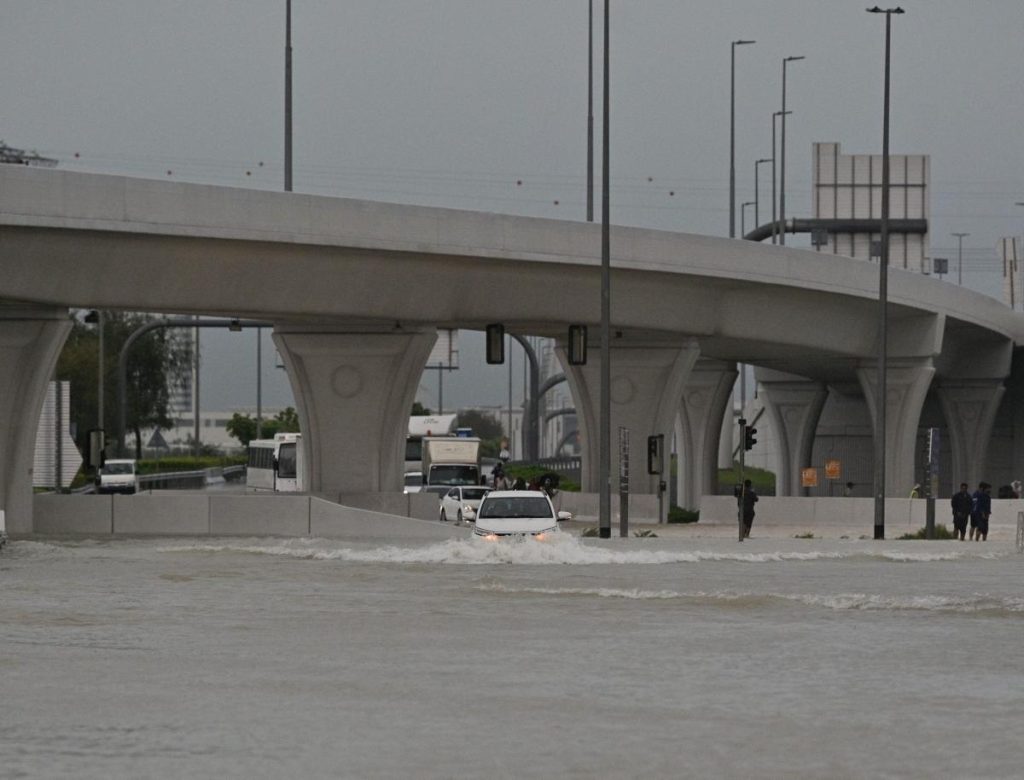Dubai, a desert city not accustomed to heavy rainfall, experienced an unprecedented amount of rain in just one day, causing widespread flash flooding. The city received 6.26 inches of rain, which is double its average annual rainfall of 3.14 inches. Dry creeks turned into rapids, overflowing onto roads and causing chaos throughout the city. The National Emergency Crisis and Disaster Management Authority urged residents to stay at home unless absolutely necessary, with schools operating online and commuters working from home.
Despite the warnings to stay indoors, many people ventured out into the flooded streets, leading to abandoned and stalled cars with water up to the wheel wells. The city’s second-busiest airport, Dubai International Airport, had to suspend flights due to the storm’s impact on the runway. Arriving flights were diverted or canceled until conditions improved, while departing flights were still allowed to operate. The extreme weather conditions have caused disruptions in the city’s transportation system and daily life.
In neighboring Oman, the same storm system resulted in the tragic deaths of 10 children after flash flooding swept a school bus off the road. This heartbreaking incident highlights the danger and devastation that can occur during extreme weather events. The region is bracing for another wave of heavy rainfall on Wednesday, which could further exacerbate the flooding and damage caused by the initial storm. Authorities are urging residents to remain vigilant and take necessary precautions to ensure their safety.
The dramatic footage of flooded roads and highways resembling rivers serves as a stark reminder of the power and unpredictability of nature. The city of Dubai, known for its modern infrastructure and luxury amenities, faced challenges in managing the effects of the heavy rainfall. The unprecedented amount of rain in such a short period overwhelmed existing drainage systems and infrastructure, leading to widespread flooding and disruptions in daily life. The city’s emergency response teams worked tirelessly to address the situation and ensure the safety of residents and travelers.
As the desert city grapples with the aftermath of the severe weather event, the focus is on recovery efforts and preventing further damage. The impact of climate change on extreme weather events is becoming increasingly evident, underscoring the need for proactive measures to mitigate risks and adapt to changing conditions. The flooding in Dubai and Oman serves as a wake-up call for policymakers, urban planners, and residents to prioritize resilience and sustainability in their response to future weather challenges. In the face of such adversity, communities must come together to support one another and build a more resilient and adaptable society.


